Immersion Atmosphere
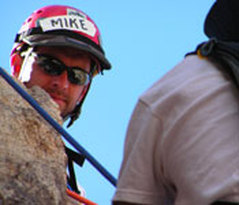
Our courses immerse the student in rescue training. Our philosophy of instruction is one of continuity of information. Each of the concepts or skills taught will first be explained, and then demonstrated by the staff.
Once student’s questions are answered, they will be given time to practice each of the skills. Our agenda is set up to facilitate maximum hands on time. Our low student to instructor ratio allows for personal attention and is one of the attributes that set us apart from other rescue courses.
Once student’s questions are answered, they will be given time to practice each of the skills. Our agenda is set up to facilitate maximum hands on time. Our low student to instructor ratio allows for personal attention and is one of the attributes that set us apart from other rescue courses.
Comprehensive Curriculum
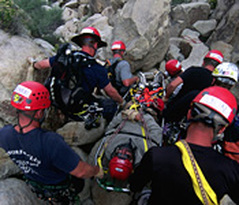
Our curriculum climbs a logical progression from personal skills all the way through to high-angle litter handling. On the way, we teach several low-angle skills and techniques useful for moving patients through difficult terrain and rubble. These skills, which are overlooked in many schools are actually the “meat and potatoes” work of many teams.
NFPA 1006-Compliant Certification
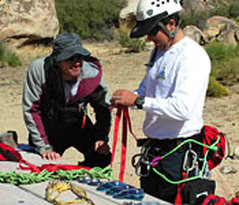
We teach a curriculum that is compliant with the standards set forth in NFPA 1006. Students who complete our Technician course and pass an evaluation will be given a certificate to indicate that they meet that standard. This helps to insure that our curriculum and our students meet or exceed industry expectations.
Instructional Staff
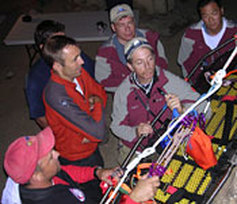
The varied backgrounds and experience of our instructors and their genuine love for teaching combine in a way that makes the learning experience quite special for our students. We often get comments from students at the conclusion of the course that it was the best training experience they had ever had. Ultimately, that is our goal at Peak Rescue.
Meal Plan
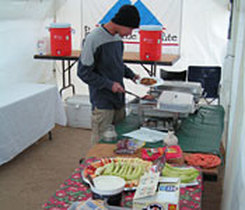
Food is normally not a contributing factor in selecting a rescue course. Our meal plan is important for a couple of reasons. The obvious one is that we all need nourishment and we might as well make it great food while we are at it. Our caterer is a restaurant professional and the food will show it. Secondly, because we teach in a fairly remote area, having meals provided onsite allows for much more instructional and practice time.
Location
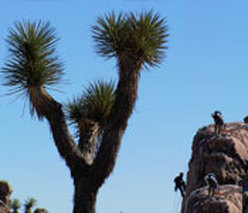
Joshua Tree is a wonderful place to teach and learn rope rescue. The fact that we are able to camp, eat, sleep and train in one location allows us to be very efficient in the time we spend teaching and in the time our students spend learning. When you add in that the weather is typically great and the scenery is world class, we feel that there is no better rescue training experience available.
American Mountain Guides Association

Peak Rescue Institute is a member of the American Mountain Guides Association and has undergone peer review to become accredited in the Single Pitch Rock terrain discipline. Several of our instructors are certified as Single Pitch Instructors and we have others currently pursuing certification in the Rock and Alpine disciplines. These instructors have been trained and evaluated by the AMGA in a curriculum that conforms to an international standard. Accreditation of Peak Rescue Institute informs the general public and land managers that our program utilizes a number of instructors who are individually certified and that all our instructors have received formal training appropriate to the terrain where we teach. Our AMGA accreditation is another example of Peak Rescue’s commitment to excellence in education and our willingness to do the hard work necessary to fulfill that commitment.

